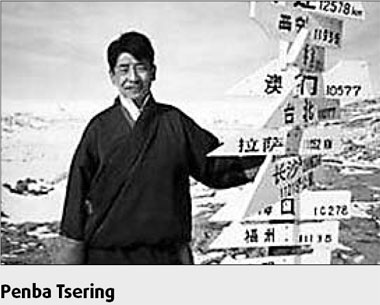Penba Tsering made history when he became the first Tibetan to visit the South Pole, and if he ever gets the chance, he would like to repeat the feat by visiting the North Pole.
The China Meteorology Institute and Tibet weather bureau sent the 35-year-old weather engineer to the South Pole in November 1999 for 15 months of scientific investigations.

"The wind at the South Pole may not freeze someone to death, but it can still be deadly," Penba Tsering said.
When he was not doing research, he used his free time to watch penguins and seals. He still remembers the long periods of darkness when the polar nights arrived in May.
"It was always night time, and loneliness made many team members tired and gloomy. There were reports that some people commit suicide during the night season," Penba Tsering said.
The end of the long night is a time for celebration in the South Pole. The scientists celebrate the sun's return by setting off fireworks.
"I still have very fond memories of that time, although it was really tough," he said.
It has become a tradition among the visiting researchers at the South Pole's Zhongshan Station to engrave the name of their hometown in a piece of wood there.
Penba Tsering spent two weeks carving "Lhasa" in both Chinese and Tibetan. He also left behind a silk Thangka from the Potala Palace to mark his passage at the end of the world.
"I want to know whether they are still there. Now my dream is to leave a brand at the North Pole," he said.
(China Daily April 11, 2008)